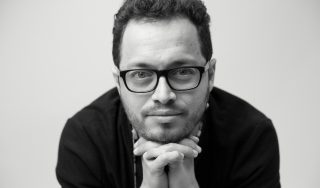
The Guatemalan who is making the 'American dream' come true
Liliana Velásquez, an immigrant who came alone to the US when she was 14, is now studying nursing at Montgomery County Community College.
At just 19 years of age, Liliana Velásquez has already proven that she is a brave woman and that she is ready for great things. Five years ago she traveled alone from Guatemala to the United States for a basic need: to save her life. Today she studies nursing with the hope of returning one day to her hometown to help her people.
Liliana was born in Villaflor, a small Guatemalan hamlet a few hours away from the border with the state of Chiapas in Mexico. There she spent her first fourteen years, growing up with her brothers, her father and her mother in a house with mud walls and dirt floors.
When she was nine years old, she had to leave school. Her father, who was barely working, became ill and she, the seventh of nine children, was forced to help with household chores while her mother went out to look for a way to make ends meet.
At 14 she had already endured a long list of challenges: extreme poverty, lack of education, hunger, domestic violence, attempts of sexual abuse, exploitation, child labor, machismo (her mother told her that her fate - like that of other women in her community- was to marry and raise children) and a long list of other obstacles.
In other words, at only 14 years old, Liliana had already lived a life that no girl should have to live. Because of that, she decided to leave. She bought shoes, packed a couple of clothes, a Bible and a cell phone, and set out on foot, by bus, hitchhiking, and riding on "The Beast" — “La Bestia,” the train that many migrants ride to the U.S.-Mexico border. She traveled for three weeks, through 32 towns and cities, until she reached the United States: 2,200 miles to the north from where she started her journey.
The story of Liliana cannot fit on this page - to try to do so would be an unforgivable audacity - but it is worth saying that in five years, this Guatemalan immigrant managed to reverse a bleak destiny to create her own 'American dream'.
In Philadelphia, Liliana returned to school, graduated high school and has now started to study nursing. Last year she published Dreams and Nightmares, her first bilingual book (available on Amazon): a complete testimony of her experience as part of the wave of thousands of unaccompanied children who have crossed the border in recent years, and who in 2014 forced the government of Barack Obama to declare a humanitarian emergency.
Liliana is one of the twelve finalists for the "I am an American Immigrant" campaign of AL DÍA News and Cabrini University.
Because many people here in the United States still don’t know anything about our lives, they don’t know why we decided to come. We come for a reason, because we don’t have opportunities in our countries, we don’t have education. We come in search of opportunities to improve our lives and help our families.
RELATED CONTENT
On the one hand, it is not easy [to be an immigrant] because you live with the fear of being deported. On the other, you try to take advantage of opportunities to help your family in your country.
When I came it was very difficult. I felt alone, I did not know anyone. But I began to meet people who offered me their help. That, for me, was like feeling at home. My foster family, Marcos and Layla Luria - whom I now call "mom" - was the person who approached me and gave me that love and opportunities that I never had. I felt that I had family when I had people who were supporting me.
The other [moment] was when I got my green card. I said, "Now I can stay, I no longer have to worry [about] returning to Guatemala".
People who come from other countries are very useful because they are workers; they do most jobs that Americans don’t want to do.
We never give up; we always look for ways to be strong and to get ahead. We never stay [quiet], we are always active. Sometimes we go through difficult times, but there we are, with our heads held high.
If I had the opportunity to meet him, I would say that he has a very hard heart. I would ask him why he refuses to understand our dreams. I would say that we are very hard workers, that we only want to help our families; that we are not bad people; that we look for opportunities.










LEAVE A COMMENT: